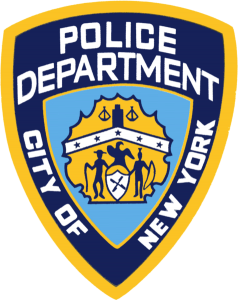Most NYPD cops don’t want to wear body cameras — but they may soon get paid for their trouble.
In an effort to sweeten the pot in contract talks with the police union, City Hall is offering a 1 percent salary bump for officers forced to use the equipment, sources told The Post.
A total of 1,000 will be chosen to wear the cams by the end of next year as part of the NYPD’s compliance with a 2013 federal court order.
They will be chosen by federally appointed monitor Peter Zimroth and his team from 20 precincts with the highest crime rates. The cameras will eventually be required for all of the NYPD’s approximately 20,000 patrol cops.
City negotiators offered the 1 percent bonuses during a Dec. 16 mediation session as part of a slew of incentives to resolve its contract dispute with the Patrolmen’s Benevolent Association, sources said.
But a union source said they need to see the fine print of the camera proposal before considering it.
“This is not a negotiation. It’s mediation,” the source said. “The city’s proposal is vague. The devil, as they say, is in the details — of which there are none.”
Union sources believe the offer is just a desperate attempt by Mayor de Blasio to resolve contract issues and win over the rank-and-file before his run for re-election heats up.
“De Blasio just wants cops to think he is being nice to them for once,” a source said.
The city has offered the PBA 9 percent raises retroactive for time worked from August 2012 to July 2017, sources said.
NYPD cops have been working without a contract since 2012.
In addition to the body-cam incentive, the city also offered to pay an extra $2,500 to every cop who works on patrol — and another $750 to officers if they have a bachelor’s degree or higher, sources said.
Several union members complained that the proposal package calls for killing an annual $522 annuity for new hires.
“None of the other unions had to give anything up, so bonuses are at a cost” to PBA members, a source said.
The source added that the proposed bonuses will have strings attached.
“There are a lot of clauses that will eliminate cops from getting the bonuses, whether it is because of Civilian Complaint Review Board complaints or if they were in the military and didn’t get to go to college,” the source said.
A City Hall spokesman declined to comment.
PBA President Patrick Lynch said that, as of now, the city’s offer isn’t up to snuff.
“New York City police officers do a difficult and dangerous job, one that is different from the job of any other city worker,” he said in a statement.
“Our members remain the lowest-paid police officers in this area. They deserve more than any of the proposals the city has put on the table so far.’’
Police have resisted body cameras in several cities, and sources say most NYPD cops also are reluctant to use them.
“They are inevitable,” Eugene O’Donnell, a former NYPD cop and a professor of law and police studies at John Jay College of Criminal Justice, said of the cameras.
But while “they will usually vindicate the cops . . . any seasoned street cop knows it will be the end of most self-initiated police work. The stakes are too high.”
In Boston, Police Commissioner Bill Evans made the city’s body-cam program mandatory after no one volunteered for a pilot project.
Cops in Cincinnati also have asked for salary bumps for wearing the devices.
The NYPD held a pilot body-cam program that included 54 cops in six commands who volunteered to wear the devices. It ended in March.
http://nypost.com/2016/12/26/city-to-pay-nypd-cops-more-to-wear-body-cameras/


